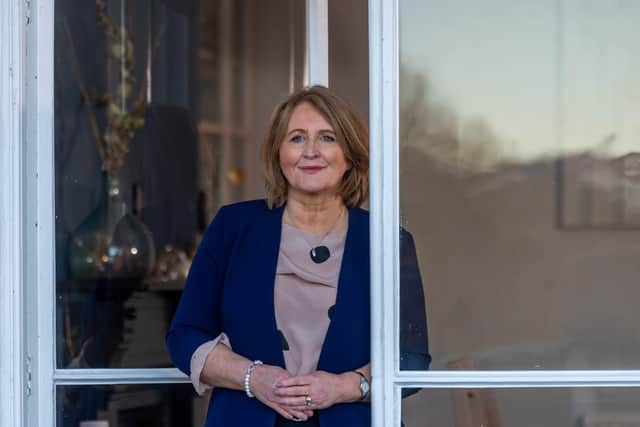Warning over a lost generation of pupils as GCSE results show glaring inequalities in Yorkshire's most disadvantaged communities
According to figures released by Ofqual, poorer pupils in England eligible for free school meals have dropped further behind this year.
Fewer than 14 per cent of grades for students on free school meals achieved level seven or above, compared with more than 31 per cent of pupils who are not eligible for the benefit, with the gap increasing by nearly a fifth over the last four years.
Advertisement
Hide AdAdvertisement
Hide AdWith many of the most disadvantaged areas concentrated in northern cities such as Bradford and Hull, the former Children’s Commissioner for England, Anne Longfield, has called for a radical overhaul of education similar to that seen in the capital.


Otley-born Ms Longfield, who is now on the board of the Northern Powerhouse Partnership, said: “The London Challenge was launched by the Government in 2003 and successfully transformed some of the capital’s most under-performing schools.
“It did require significant investment but it was more than just money. It was about putting in place a robust infrastructure which allowed schools to work collectively, sharing learning and solving problems together.
“If this Government is serious about levelling up it needs to start with an education-led approach. It is about understanding where the weaknesses in the system are and identifying where intervention is needed.
Advertisement
Hide AdAdvertisement
Hide Ad“However, it needs the political will, because without that it simply won’t happen.”
A separate analysis by Ofqual found that 61.2 per cent of GCSE entries from private schools in England were awarded a grade seven or above this year, compared with 57.2 per cent in 2020 and 46.6 per cent in 2019.
Grammar schools had 68.4 per cent of entries achieve a top grade this year, while in comparison 28.1 per cent of pupils at academies were awarded a grade seven or higher.
Sir Peter Lampl, founder and chair of the Sutton Trust and the Education Endowment Foundation, said: “Our research has consistently shown how much harder state schools – particularly those in less-affluent areas – have been hit by the pandemic. It has compounded existing inequalities and today’s results are a reflection of that.”
Advertisement
Hide AdAdvertisement
Hide AdThere are now growing concerns that the inequalities could have a long-term knock-on effect on the workplace, with many of today’s teenagers denied opportunities available to succeed.
Alissa Dhaliwal, head of skills at the Confederation of British Industry, said: “Ensuring people from all backgrounds can fulfil their potential in education is crucial to securing a more inclusive economy.
“We cannot allow the pandemic to worsen inequalities. Employers want diverse workforces which reflect the talent that exists in all corners of society.”
Comment Guidelines
National World encourages reader discussion on our stories. User feedback, insights and back-and-forth exchanges add a rich layer of context to reporting. Please review our Community Guidelines before commenting.